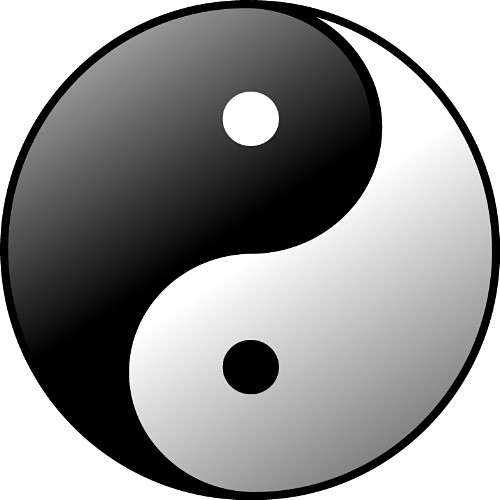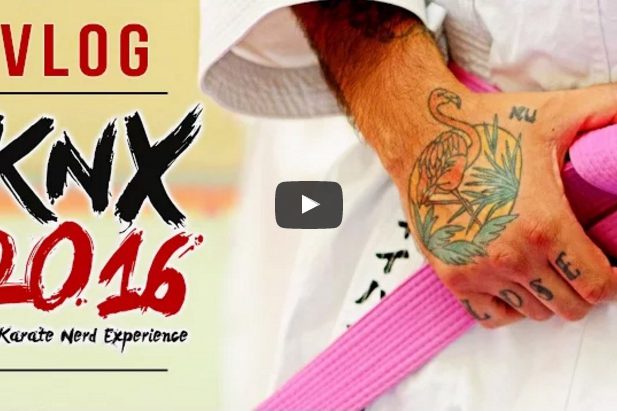Let me ask you something:
Do you have a hard time understanding water vapor? (You know, that gas thingy you see when you start to boil water?)
And do you have problems seeing how wind mills work? (You know, those big rotating things on fields, that convert wind to electricity?)
Do you have trouble understanding why an energy drink works? (How the carbohydrates are absorbed by your body?)
Lastly, do you think it’s difficult to understand why something can start to burn when it becomes too hot? Or why living solely on chocolate bars makes you fat?
Do you?
No?
Then why do you have such a difficulty understanding the “super mystical” Japanese word ki?
Huh?
(Yeah, you know what I mean. That magical word your Japanese sensei uses when he, to no avail, tries to explain the finer points of some technique to you: “Use ki force, more ki powaaah” he says, and you go, “Hai sensei!”, thinking “Yeah… that force.”)
Because in my book, ki equals…
Energy.

Nothing more, nothing less.
Yet, again, we Westerners – as always – seem to have a tendency to make every Karate related Japanese word more difficult (kime, anyone?). We come up with a trillion different explanations and definitions to certain terms in order to understand their uses better (or make ourselves look smarter?), but end up digging our own hole of understanding even deeper down into the pits of idiocy (where the archbishop Don Ignoramus III reigns, for your info).
We think that ki (also chi or qi) is some fluffy, magical term used exclusively by bearded Oriental martial arts grand masters on top of snowy mountains, shooting ki balls at anyone who dares oppose them, when in fact it is nothing more than an old traditional Japanese/Chinese term for energy.
E-N-E-R-G-Y
And it’s not even “rare”.
It’s used, like, all the time.
In fact, I command you to right now go and pick up a Japanese text book for beginners. The first sentence you will learn, right after “Hajimemashite, watashi wa Sumisu desu” (Nice to meet you, my name is Smith), is “Genki desu ka?” (How are you?)
See that?
There’s a “ki” in there.
“Genki desu ka” literally means “Is your energy centered/rooted?“, but is commonly translated as “How are you?”, and it is one of the very first sentences you will ever learn in Japanese. And there’s about a thousand more sentences you’ll learn that contain the word ki, in one way or another.
There’s absolutely nothing mystical or spiritual about it at all.
No martial arts fairies sprinkling pixie dust over your fists of fury.
No “touch of death” or KO’ing people from distance with your “ki power”.
And definitely no stopping full contact kicks with your incredible “ki shouts” (video suddenly removed for strange reasons..).
…
Sorry, I just got a terrible laugh attack from that last link… aah… my stomach hurts. Gotta pooh pooh… be right back…
(For Funakoshi’s sake, focus now Jesse-san, you have an article to write. People are waiting!).
….
All right, I’m back.
So, I guess what I’m trying to say is that ki is nothing special. It is, however, a widely misunderstood and misused term (for good or bad), meaning people can do all kinds of hocus pocus and get away with it simply by saying, “Well, I just used my ki force, that’s why!”
And nobody can argue.
Because they don’t have anything to say against it. Right?
In fact, I am not supposed to tell you this, but I am a ki master myself.
Yes. That’s right. A real life ki master is writing these words in front of you. As a matter of fact, just this morning I indulged myself in 8 ounces of pure-ki-power-imbued orange juice (to be exact, the package said 136 kcal). And later, after training, I stuffed down a super-ki-force-imbued chocolate bar, containing a whopping 245 kcal of pure ki energy awesomeness. How about that?
In other words, you don’t want to mess with me.
What’s that? You’re still not convinced? Still thinking that “There’s just got to be something more to this! My sensei shot me with a ki ball and I swear I could feel it!” ?
Well, here’s an idea. Let’s look at the actual old kanji (Chinese character) used to write ki. Perhaps that can give us some help in determining what it really means?
Here it is:
This kanji consists of two parts.
The upper/right side part, which means “steam”, and the lower left side part which means “rice”. The kanji is pronounced “ki” in Japanese, “chi” in Chinese (“qi” is an alternative Chinese spelling). In other words, ki means the “steam coming from [cooking] rice”. That was the original idea behind ki.
(Looking at the kanji, it actually almost looks like steam on the top, don’t you think!?)
And what on earth could the “steam coming from rice” be then?
Heat, maybe?
Thermal energy, perhaps?
Yup.
Energy.
Yet again, we have confirmed that there is nothing mystical, cryptical or magical about ki. Though, I guess there once WAS some mystery to it (when people didn’t know about the different laws and classifications of energy), but today we know pretty much about energy. Except black holes. Those are scary. That’s like negative energy, or something, right? Like, when spacetime is deformed, like in other dimensions, kind of? (just… just don’t go there, Jesse. Leave it to the pros).
Okay.
So what’s the problem then? Why do we still have such a hard time explaining ki? Why, when you ask a Japanese Karate master what ki is, will he become red in the face, start to stutttttter uncontrollably, sweat massive amounts and hastily excuse himself? Huh?
Well, if I ask you the exact same question in English, perhaps you will see the difficulty?
“What is energy?”
You answer that.
(Can you feel the sweat coming? The pooh pooh pressing?)
It’s hard, isn’t it?
So, my suggestion is, until you can successfully come up with your own elevator pitch defining the fundamentals of energy (in another language of course, to some “stOOpid foreigner” who travels around half the world to learn this from you), don’t blame the Japanese or Okinawans for “trying to hold back secret martial arts information” from us.
Because they’re not.
It’s just… not that easy, okay?
(But don’t tell anyone. People are obviously making boatloads of money out of this.)
And that’s my take on “ki”. Case closed. You are dismissed.
I’m going to Okinawa.



50 Comments